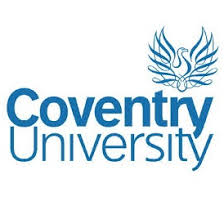
Case study: Coventry University
About Coventry University:
Established as a university in the 1990s, Coventry University has more than 27,000 students. Four academic faculties make up the university, with each faculty divided into different schools. These are:
Faculty of Arts and Humanities
Faculty of Business and Law
Faculty of Engineering, Environment and Computing
Faculty of Health and Life Sciences
The university ranked 12th in the Guardian University Guide 2018 and received the title of Top New University in the Complete University Guide 2018. It was also awarded gold status in the 2017 Teaching Excellence Framework.
The challenge:
Coventry University hosted several servers across three data centres on their primary campus, which powered the core systems used across the University Group. As the University server requirements increased over time so did the demand on the infrastructure environment.
Coventry had an increasing number of problems in managing the server rooms in-house. The walls of the server rooms weren’t properly sealed due to age and they had issues maintaining suitable air conditioning and fire suppression across the course of the year, compromising the safeguarding and security of the servers. As Steve Rogers, Lead Architect for the Enterprise Cloud and Infrastructure Architect department at Coventry University explained:
"Our estates department was responsible for managing the server rooms, but they weren’t data centre specialists, which created a lot of ongoing pressures and problems to manage and maintain a suitable and stable server environment. We struggled to keep the rooms sufficiently cool and this was coupled with regular power downs and electrical maintenance schedules."
As a growing University, physical campus space was also at a premium and there was a strong desire by the University to free up rooms around the campus for teaching and learning. The IT team realised they needed to review alternative options to house their servers in a reliable and scalable data centre.
The solution:
By using aql’s colocation service the University has the peace of mind that their servers are stored in a secure, flexible location that protects their data within an ISO-accredited environment, with enterprise-grade intrusion detection and millions of hardware and network metrics monitored daily. Steve Rogers says:
"Working with aql, we knew that security, power, fire suppression services and redundant links would all be taken care of, so we could focus on our work without having to worry.”
aql’s data centre enables direct access to the Janet network via a high capacity access point, and is a point of presence to the cloud, with direct links to Microsoft Azure in place via express routes, which was an important requirement for the University in support of its IT strategy.
"What I like about aql is the fact that we always have the ability to pick up the phone and speak to our dedicated account manager, who will immediately deal with things or escalate them to the tech team if necessary to resolve the problem. What’s more, aql is also at hand to come up with innovative solutions if required and is constantly willing to go the extra-mile in that respect."
Steve has been delighted with the service he’s received from aql since the move, commenting:
"Our implementation and setup went smoothly, and we haven’t had any service issues since going live. We’ve also used aql’s remote hands service, which has provided a lot of value. This has enabled us to make requests to aql’s data centre team without us having to travel to the data centre ourselves. The team have been responsive and diligent with all tasks we’ve requested them. Overall, we’re really pleased with moving to aql’s colocation services because we’ve now got more space on campus to devote to teaching and can also focus our team on doing what it does best, knowing aql are keeping our server environment running smoothly."

